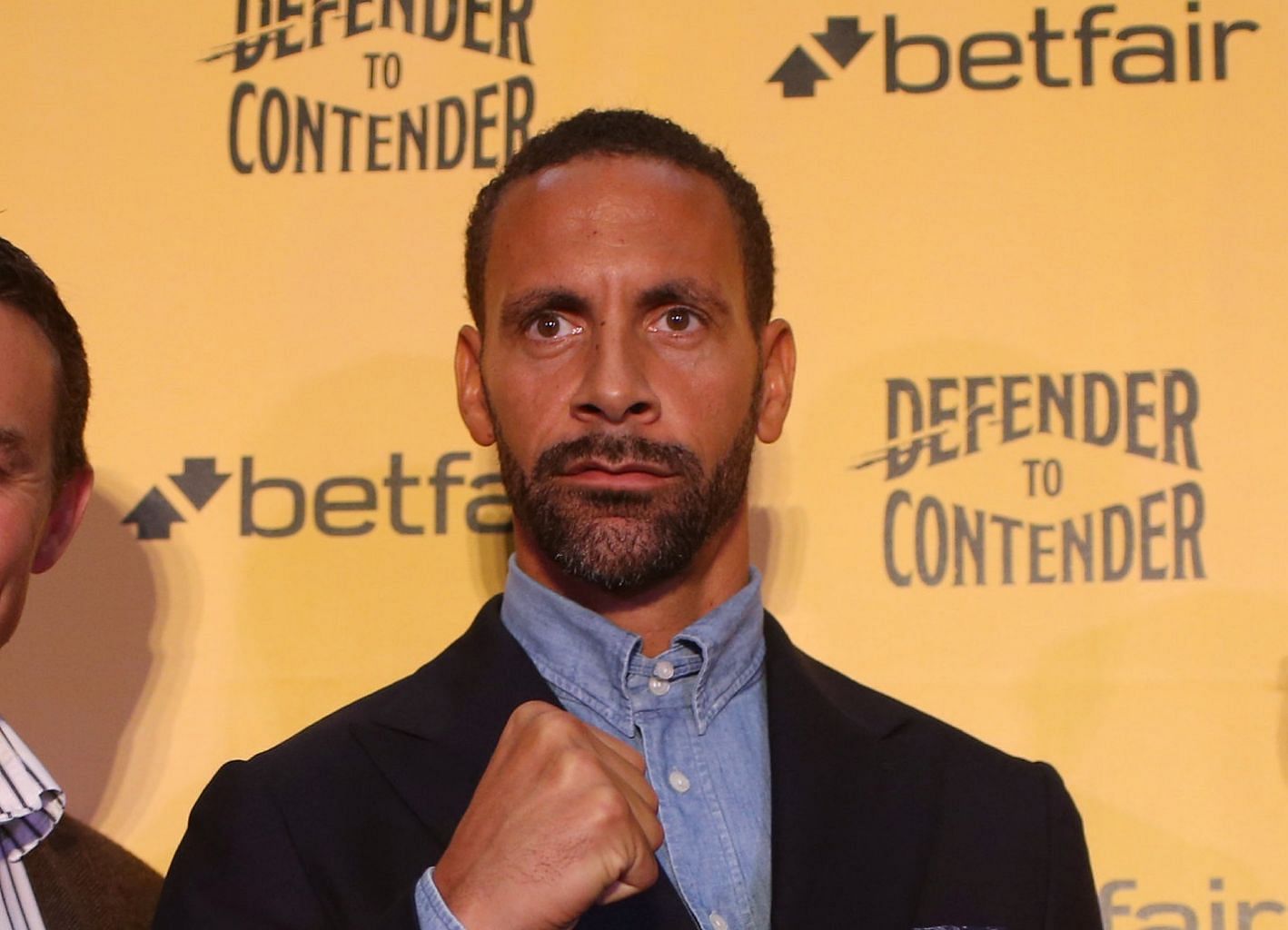Rio Ferdinand has millions in the bank, trophies in the cabinet, a TV job as a decent pundit, and three kids who he cares for as a widowed parent.
It is not enough. He announced this week that he is in training to be a professional boxer.
Whether we class it as a publicity stunt, or take his word for it that he has a competitive gene that needs fulfilling, there can be no doubt that he is playing with fire.
"If it is a stunt," he barked back at one reporter drawn to his publicity launch on Tuesday, "it's a dangerous one."
The betting company behind his conversion from retired footballer to novice boxer billed this as "Defender to Contender".
Contender for what? Ferdinand is grieving for more than his former West Ham, Leeds, Manchester United and England fame. Two years ago he lost his wife Rebecca to breast cancer.

In July, Janice, his mother who took over the roles of parent and housekeeper to Rio and his children Lorenz, 11, Tate, nine, and Tia, six, also died of cancer.
Heartbreaking, and about as disorientating as you can imagine.
Ferdinand dealt with it in the public way that he has lived most of his adult life. He bared his soul to a BBC documentary entitled Rio Ferdinand: Being Mum and Dad.
In his own words, he put it all out there: Bereavement, psychological confusion, loneliness, striving to comprehend fate, and to guide his young children through his and their pain.
But his life is full to bursting. We will leave the celebrity media to conjecture about a new lady love moving in with the family. That is Ferdinand's business.
But he is ready to talk about home and family and the compulsive demon inside of him.
"I'm not coming into this lightly," he said. "The first thing the kids said was, 'You better not lose, dad'. This is an opportunity to influence my kids, to show you need to have focus and discipline."
When will he tell them that boxing is brain-threatening?
When will he know what it feels like to take a punch to the head, the heart, the solar plexus as a 38-year-old former professional football player?
"I miss that competitive edge," he said. "When you've got that chemical in your body, you need to find a way to keep it going."
That addresses the primeval urge to be the man. But almost before he draws another breath, he brings up another reason.
"It's also something for me to focus on, to channel that aggression, anger, emotion..."
He enjoys his punditry in front of the TV cameras. He is reckoned to be worth £68 million (S$123.6 million) through investments in property in the UK and the Caribbean. He dabbles in fashion design, he has collaborated on two editions of his autobiography, he has by his own admission grown up after some lurid sex romps and his ban for dodging a drugs test while captain of England. And even his split with his national team defensive partner John Terry after Terry racially taunted Ferdinand's younger brother Anton.
A glamorous life, a messy life, a hyperactive and a lucrative one in the bubble of fame a long, long way from the council estate in Peckham where his Irish mother raised her children after their Caribbean father walked out.
All of this, Rio Ferdinand chooses to put into the public domain. There might be a compulsion for attention that is stronger than the physical one he describes. Clearly it is not driven by the need for money, though, of course, there is a commercial imperative to this.
Betfair, the bookies who paid former Olympic cycling champion Victoria Pendleton to "switch saddles" and ride as a National Hunt jockey, insist: "There will be remuneration, but the fighter's journey and his health will be the No. 1 priority."
Boxing promoter Barry Hearn, a veteran of fight game publicity, scoffs at that. "Let's be totally realistic," he says. "This is sponsored by a betting company. It's a reality TV show, made for money."
Hearn doubts that the British Boxing Board of Control would grant Ferdinand a pro licence in less than 12 months, by which time he will be nudging 40.
"If Tony Bellew, David Haye or Anthony Joshua hit Rio Ferdinand," Hearn adds, "it would probably be prosecutable by the police for using a deadly weapon. He could get himself badly hurt."
There talks a man who made a living out of putting other men's sons into the prize ring, a tradition that Hearn's own son, Eddie, is carrying on.
Ferdinand hears the sceptics, and insists that he will be properly trained and physically and mentally sound for this second career.
"I'm like an armchair fan of boxing," he said. "You watch, asking why is he not throwing a left, why's he backing off. I wanna meet the challenges head on."
Head on; he said it.
There is a precedent to this bookmaker's challenge. Five years ago, Andrew Flintoff, once a great cricket all-rounder, had a one-fight career in boxing.
He was forced out of cricket because of shoulder, knee and ankle wear and tear. Test cricket was too physical for him, so he took to pugilism instead. To a point. Flintoff had one pro bout. He battered a hapless American called Richard Dawson over four rounds in November 2012.
Job done, TV documentary aired, and he could move on. He now co-hosts a television show called Cannonball, a crossover between showbiz and wacky physical challenges for contestants.
Maybe that is where Ferdinand is heading. A burst of adrenaline, a boost of publicity, a sideshow to help wean himself off the sporting addiction.


